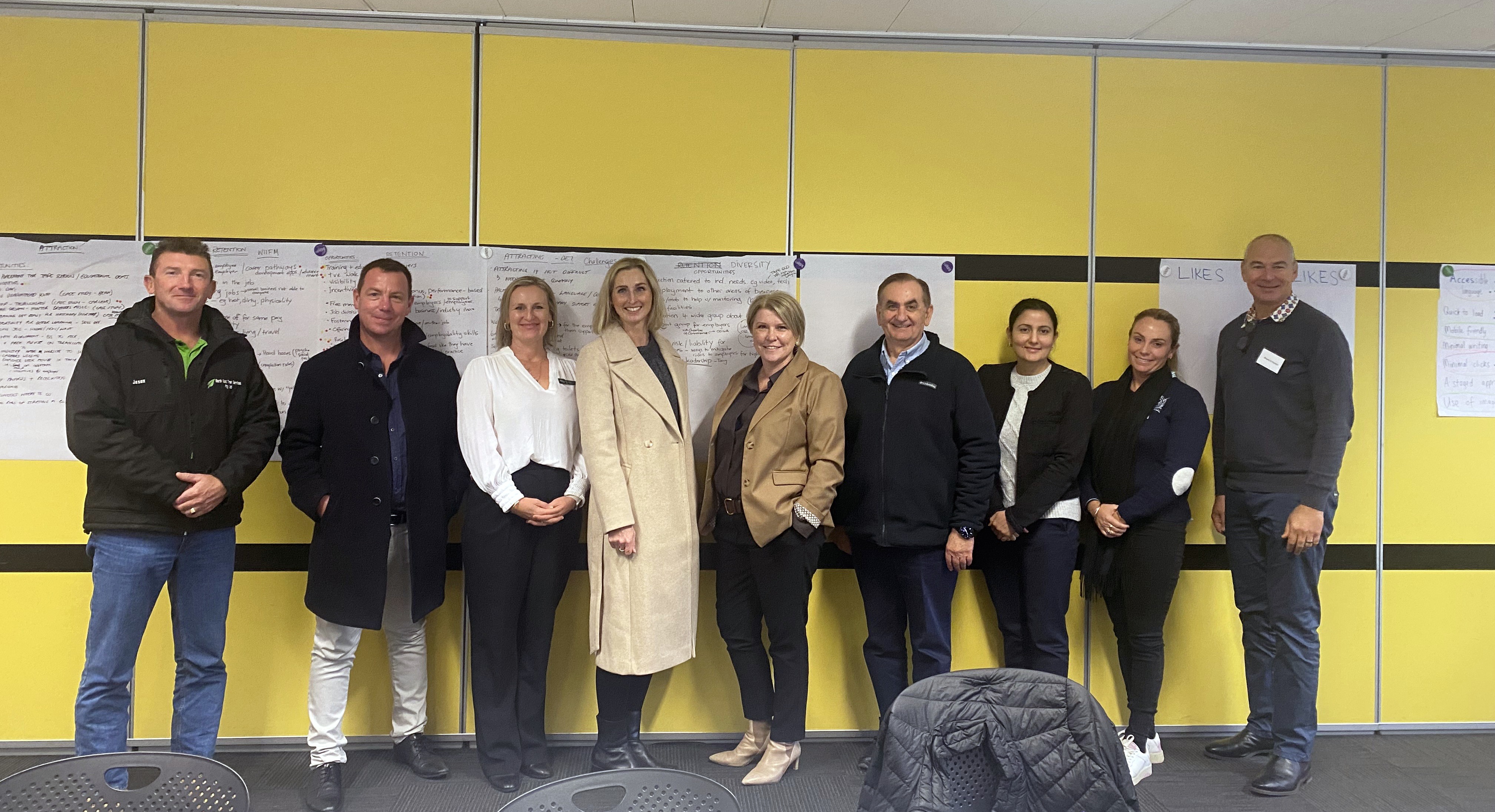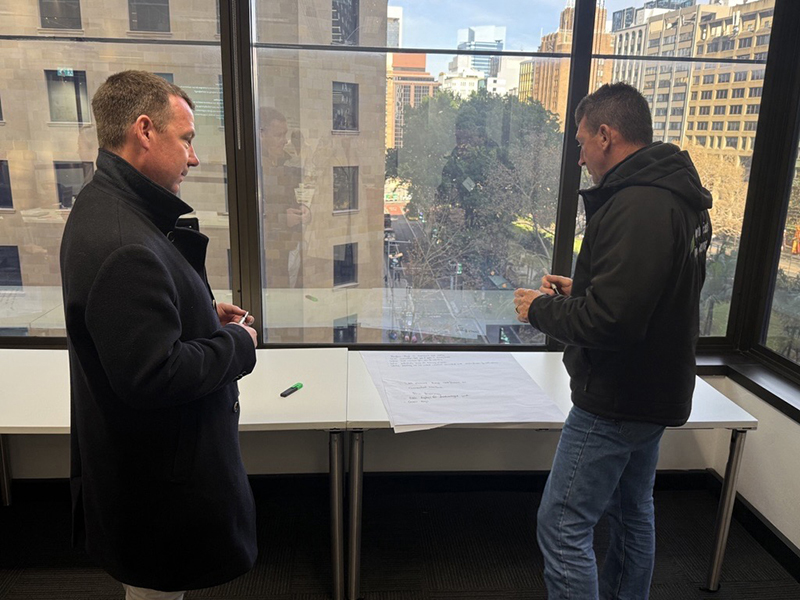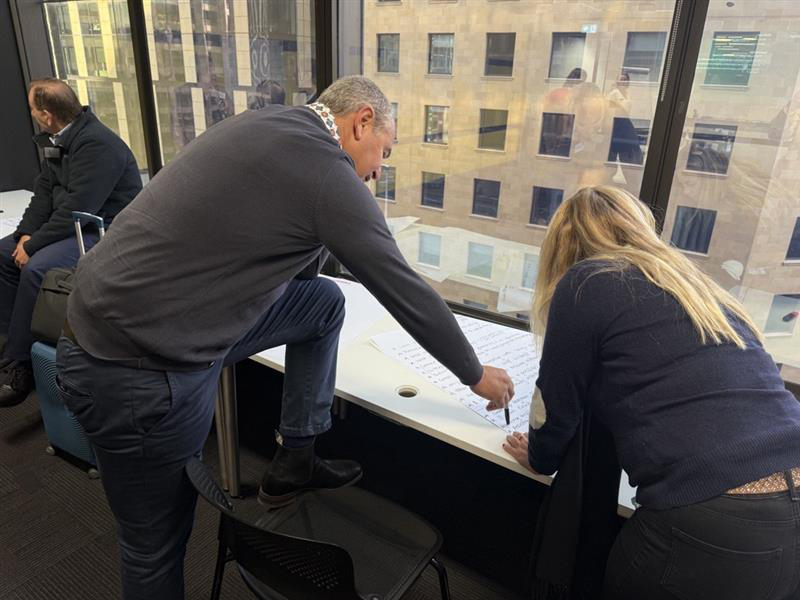Attracting and retaining a skilled workforce is a key priority for the industries Skills Insight supports. These industries care for our environments and animals and produce the raw materials that feed, clothe and house the population. With many operations based in regional, rural and remote areas, they face unique workforce challenges.
A multitude of effective strategies and resources exist; however, businesses can struggle to navigate them and identify advice that suits their specific attraction and retention needs.
Click across the tabs to view active and completed project stages. Consultation takes place at every stage of the project.
In consultation with relevant stakeholders, Skills Insight is undertaking a desktop research project to develop guidance for small to medium business to support the attraction and retention of employees across regional, rural and remote (RRR) areas. The aim is to produce a centralised, web-based collection of tools and resources that will highlight opportunities for workforce development, together with case studies of successful place-based initiatives, empowering industry in regional, rural and remote areas to attract, retain and re-attract workers across all sectors.
Approach
The project team will collect information about current processes and examples of effective attraction and retention strategies.
A stakeholder working group will be established to participate in an industry needs analysis and provide advice on the development and implementation of the webpage. The broader industry will also have the opportunity to provide feedback on the draft webpage. It will then be submitted for review by the Department of Employment and Workforce Relations at the end of the project.
Content and scope
The final webpage will be available on the Skills Insight website to support small to medium businesses seeking to improve their workforce attraction and retention. The aim is to provide a central location with information and tools that support industry to address attraction and retention challenges by bringing together existing resources in a clear, accessible, and user-friendly format.
The scope and content will be refined with input from the stakeholder working group and broader industry consultation. Consideration will be given to:
- actions to support attraction of workers to regional, rural and remote locations
- actions businesses could take to attract workers to their organisation
- actions businesses could take to retain workers within their organisation
- resources to support inclusive practices and workforce diversity
- case studies that display successful and replicable strategies
- avenues for industry to seek external support.
Project manager

Ismat El Samad
[email protected]
Timeline
| Initial planning & scoping | March – April 2025 |
| Establishment of working group | May 2025 |
| Research and development of draft webpage | May – July 2025 |
| Working group review & refinement of draft | July – August 2025 |
| Draft webpage available for broad consultation & feedback | October 2025 |
| Refinement of draft with working group | November 2025 – January 2026 |
| Submission to DEWR | February 2026 |
| Publication of webpage | March 2026 |
Work is underway to develop a web resource offering tailored guidance on attracting and retaining employees across our industries, with a focus on rural, regional, and remote (RRR) areas. It is designed especially for small to medium businesses with limited management or HR resourcing. The resource will include practical tools, case studies, and other relevant materials to support workforce development.
Work to date
Drawing on knowledge gained from previous consultations and workforce planning activities, the project team identified potential topics and resources for inclusion in the web resource. The team also initiated consultations with stakeholders undertaking work to address attraction and retention across the industries we support.
A stakeholder Working Group was established to provide advice on the development and implementation of the web resource. The group first met on 19 June 2025 in Sydney and conducted an industry needs analysis to help refine the content of the web resource. The Working Group identified priority topics for the web resource, as well as key design functionality for the audience. Further meetings will be held to capture input from Working Group members unable to make the in-person session.
Next steps
A draft version of the web resource will be developed and refined with the Working Group before a full draft is developed for user testing at the Broad Consultation stage of the project.
The draft web resource will then be made available for Broad Consultation, during which there will be the opportunity to view a mock up of the web resource and provide feedback. Following this, further refinements will be made with the Working Group.
The primary outcome of this project is a practical web resource designed to support regional, rural, and remote businesses in improving workforce attraction and retention. Once finalised, it will be published on the Skills Insight website. As part of project completion, a draft will also be submitted to the Department of Employment and Workforce Relations for review, along with a report outlining the development process.



Skills Insight is developing a web resource to help small and medium businesses, especially in rural, regional and remote areas, strengthen their staff attraction and retention strategies.
Consultation with the working group has shaped a draft web resource to support employers. The webpage is structured around the lifecycle of an employee, an HR concept mapping touchpoints between an employer and employee that can improve attraction and retention outcomes. The draft resource also includes a selection of case studies demonstrating successful workforce development strategies used by real businesses in regional, rural and remote Australia. The aim is to bring together relevant tools, guidance and support within a practical framework, so that employers can easily assess and plan their own attraction and retention strategies.
Thank you for your feedback
Thank you to everyone who provided feedback on the draft webpage between 2 and 22 October 2025.
Comments were encouraged on the webpage, including your experience using it and suggestions for additional materials.
Feedback was collected via a short form below. The webpage will be further refined before it is made live on the Skills Insight website in early 2026.
Following publication, we will continue to build and add to the webpage so that it is up to date and relevant. Your input is always welcome.

Skills Insight has developed a web resource to help small and medium businesses strengthen their staff attraction and retention strategies, especially in rural, regional and remote areas.
The resource is structured around the lifecycle of an employee, offering workforce development tools for various stages of engagement with an employee. It features tailored information for each of the 13 industries Skills Insight supports, along with real world stories highlighting successful workforce development strategies across different regions, business models and industries. The resource brings together relevant tools, guidance and support within a practical framework, so that employers can assess and plan their own attraction and retention strategies.
Development process
The resource was drafted and refined through broad stakeholder feedback and guidance from the working group. It underwent quality checks before being submitted to the Department of Employment and Workplace Relations (DEWR) for consideration. It is now available on the Skills Insight website to support employers’ attraction and retention strategies.
